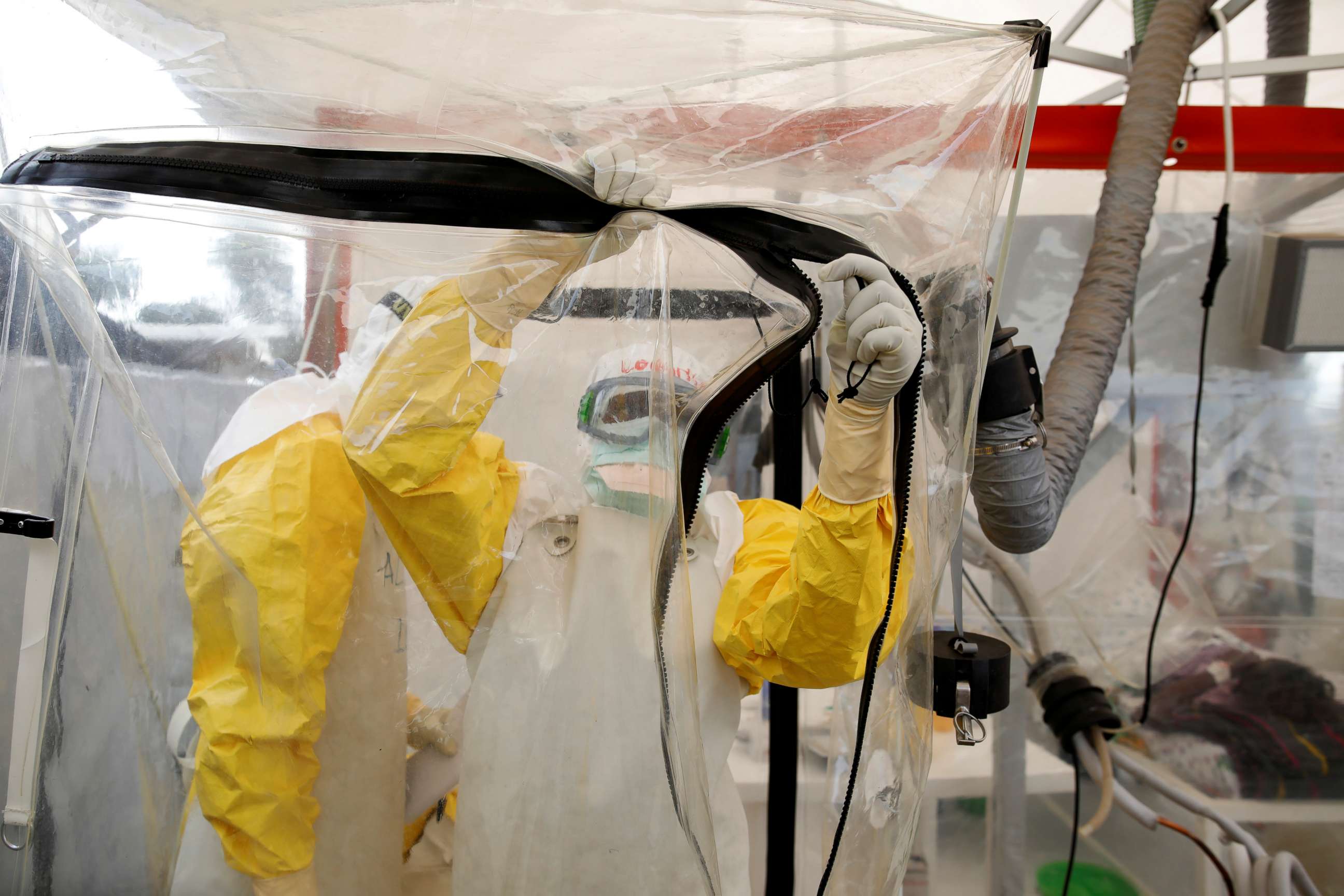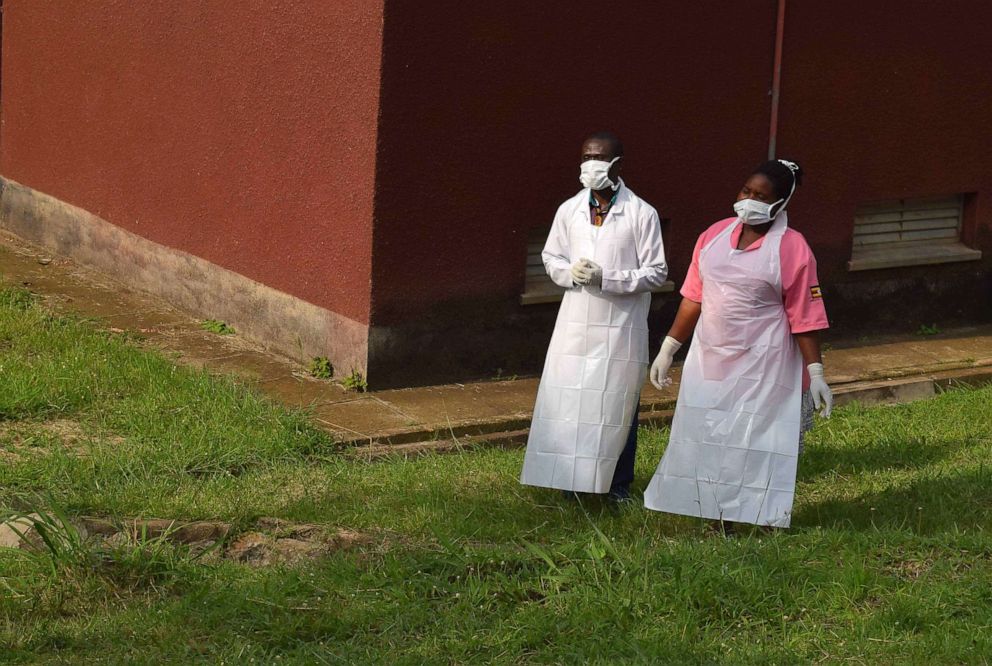Democratic Republic of the Congo discharges last Ebola patient after 14 days without confirmed cases
"There are currently zero cases of Ebola in DRC."
LONDON -- The Democratic Republic of the Congo has discharged its last Ebola patient from a treatment center -- a major milestone in the country's fight against the second-largest Ebola outbreak in history.
The World Health Organization's Regional Office for Africa posted video on social media showing the patient leaving an Ebola treatment center on Tuesday in the city of Beni, the epicenter of the outbreak.
The woman, whom the WHO office only identified as Masiko, is seen walking out with a doctor as the two thrust their joined hands into the air with people around them cheering. Doctors, nurses and other health workers dressed in green scrubs dance and sing in jubilation.
"I applaud the tireless efforts that have been made to respond to this outbreak and I’m truly encouraged by the news that the last Ebola patient has left the treatment center healthy," Dr. Matshidiso Moeti, the WHO's regional director for Africa, said in a statement Tuesday. "It is not yet the end of Ebola in the Democratic Republic of the Congo. We must stay vigilant in the coming weeks and beyond."
Although the patient has been allowed to leave, 46 individuals who had come in contact with her are still being monitored, according to WHO officials, who noted in a press release Tuesday that "all the aspects of the Ebola response remain in place to ensure that any new cases are detected quickly and treated."
The end of the outbreak can only be established when no infections arise 42 days after the last reported case has tested negative.
Despite notes of caution from other doctors, Dr. Jean-Christophe Shako, a Congolese epidemiologist who heads a local Ebola response team, told ABC News in a text message Tuesday, "We are at the end of Ebola."

The current outbreak of the Ebola virus disease emerged in the northeastern part of the Democratic Republic of the Congo in August 2018 and rapidly spread across three provinces, infecting over 3,300 people and killing about 65% of them, according to Congolese health officials.
A handful of imported cases popped up across the border in Uganda last year, prompting other neighboring nations to be on high alert.
This is the 10th Ebola outbreak in the Democratic Republic of the Congo and the most severe there since 1976, when scientists first identified the virus near the eponymous Ebola River. It's also one of the worst on record anywhere, second only to the 2014-16 Ebola outbreak in multiple West African nations that infected 28,652 people and killed 11,325, according to data from the U.S. Centers for Disease Control and Prevention.
The WHO has declared the current outbreak a global health emergency, describing it as more complex than the deadlier 2014-16 outbreak in West Africa due to the region's political instability, attacks on health workers, a highly mobile population, and community mistrust and misinformation. It's the first Ebola outbreak in an active war zone.

However, experimental vaccines and treatments approved for use in the Democratic Republic of the Congo have shown promise in fighting the epidemic and saving lives.
Tuesday marks the 14th consecutive day without any new confirmed Ebola cases in the country, according to Congolese health officials.
A Congolese doctor, who has treated Ebola patients in the hardest-hit areas but didn't have permission to speak to the press, told ABC News that the situation on the ground has been improving slowly.
"We need 42 days of no new cases before being able to declare the end of the epidemic," he said in a text message Tuesday. "We are at D-28 today."




